Experts unravel the significance of independent investigations, reliable sources, and verified evidence in assessing the credibility of the rape allegation.
KUBRA SOLMAZ
TRT

AFP
Anti-government protesters gather in Kaplan Street in Tel Aviv on December 8 to demand immediate ceasefire and release of hostages. / Photo: AFP
More than two months after Hamas' unprecedented cross-border attack on October 7, the Israeli government's allegations of sexual violence by Palestinian resistance fighters have resurfaced as headlines in major international media outlets such as BBC, CNN, New Yorker, and New York Times.
These outlets have published explicit stories of alleged sexual violence, including accounts of gang rape and mutilation.
This renewed focus on the issue comes after the Israeli army held exclusive screenings for invited journalists of what it claims are eyewitness accounts of alleged Hamas crimes.
The 47-minute footage titled 'Bearing Witness to the October 7 Massacre' was screened on multiple occasions. However, Israeli officials have refused to share the footage with news agencies to report on and verify the contents independently.
This detail holds great significance. Despite offering extensive coverage of information conveyed by Israeli officials in these news reports, all of them carry a subtle disclaimer: that they cannot independently "verify individual allegations and claims".
In its quest for a thorough understanding of the significance of independent verification, TRT World contacted the UN, Human Rights Watch, and Amnesty International, organisations which investigate sexual violence allegations in conflict zones, to reveal the methods, approaches, and procedures they employ for verification.
"We are required to gather information from a wide variety of reliable sources (including civil society, victims' organisations, concerned states and non-state actors) to verify the veracity of the information we received," Reem Alsalem, UN Special Rapporteur on violence against women and girls, its causes and consequence, tells TRT World.
She emphasises the importance of verifying reports of sexual violence and conducting thorough investigations independently, as highlighted in two previous press releases addressing Israel's accusations of sexual violence attributed to Hamas – one on November 20 and the other on December 14.
Reliable sources
When asked about the crucial steps that investigative teams deem essential in probing allegations of sexual violence in conflict zones, Lauren Aarons, Amnesty International's senior adviser on gender and conflict, concurs with the UN Special Rapporteur, emphasising the necessity to gather information from a diverse array of reliable sources.
"We rely primarily on information we have collected ourselves, supported by other information we trust or have been able to verify," she states. "We also seek information from all other relevant sources to be able to develop a full, comprehensive and reliable understanding of the facts, as well as what needs to happen next to ensure justice and the rights of survivors."
Regarding the sources cited by the Israeli government for their evidence, they predominantly involve individuals directly associated with the Israeli government, security services, or seemingly civilian institutions with connections to Israeli government officials and institutions.
Specifically, Israel's case relies on video testimony from a single eyewitness at the music festival, witness testimonies from body collectors of the Zaka organisation, military forensic teams, and army personnel, along with photographs suggesting potential sexual assaults on women.
Additionally, testimonies from Hamas fighters were obtained through Israel's Security Agency Shin Bet, known for its use of torture to elicit fake confessions.
Take, for instance, the involvement of body collectors as witnesses from the rescue and recovery organisation Zaka. Advertised as Israel's foremost non-governmental organisation in this field, it has 3,000 volunteers and receives funds from the Israeli government.
This is also the same organisation that propagated a fabricated story about babies being beheaded by Hamas. Yossi Landau, the head of operations at Zaka, claimed to have seen bodies of beheaded babies, a statement that has been refuted even by Israeli newspapers.
Furthermore, Zaka has become entangled in a web of scandals, with its leaders facing charges of sexual assault, rape, and child exploitation.
Cochav Elkayam-Levy is another figure portrayed by media outlets as the head of "the Civil Commission on October 7th Crimes by Hamas against women and children". She is also a law professor who has herself faced criticism for alleged human rights abuses.
More specifically, she offered a guidebook-style legal rationale for the Israeli authorities' handling of Palestinian prisoners on hunger strike, particularly those held in administrative detention without trial. She proposed the controversial method of force-feeding, which is widely regarded as a form of torture and unequivocally contravenes fundamental human rights principles.
Elkayam-Levy is also the founder and director of the Dvora Institute, which works as a close advisory body to the Israeli prime minister's National Security Council. The advisory committee for the Dvora Institute includes a former director of the Israeli Prime Minister's Office and three former officials in the National Security Council.
All of these suggest that Israel's rape accusations, attributed to Hamas, rely on anything but a wide variety of unreliable, one-sided sources echoing the Israeli state's narrative.
However, the question remains: Can we believe what Israel says based on the evidence provided by these not-so-reliable sources?
Where is the evidence?
Not only are the sources in question but also the evidence presented during interviews, briefings and screenings of footage provided by the Israeli state raise concerns.
Israel has consistently fallen short in furnishing news organisations with forensic evidence, concrete photographic proof, or victim testimonies, relying instead on inferences from its forensic teams and individuals mentioned above who evidently have ties to the Israeli government.
Currently, Israel's case relies on the video testimony of a sole eyewitness at the Nova music festival, detailing the purported gang rape, mutilation, and execution of one victim.
News reports also indicate that Israeli police claim to have "multiple" eyewitness accounts of sexual assault, but they have not provided further clarification on the exact number. Furthermore, it has been reported that Israeli police have not yet interviewed any of the purported rape survivors.
So far, Israeli government officials have yet to provide concrete information regarding the precise number of so-called victims. In investigations by prominent international organisations into such allegations, details such as the number of victims and their testimonies, dates, times, and locations play a crucial role in identifying key patterns and specific details to substantiate the allegations.
Reports from the UN, HRW, and Amnesty International on sexual violence incidents in conflict zones, including Sudan, Ethiopia, Afghanistan, Central African Republic, Libya, Iraq, Colombia, and numerous others in the last two years, have consistently included these critical pieces of information, a contrast to Israeli government's statements.
For instance, Amnesty International shared with TRT World the comprehensive array of evidence they gather and the meticulous steps taken to ensure the authenticity and reliability of such evidence:
Their collection methods encompass interviews with victims/survivors to capture their experiences and eyewitness accounts, discussions with witnesses directly involved, consultations with parents or guardians, especially in cases involving children, dialogues with medical professionals, community leaders, first responders, police, social workers, and other relevant individuals.
Additionally, they scrutinise medical or forensic records and assess any available video evidence, photos, and satellite imagery. Moreover, their investigative approach incorporates statements from the forces accused of sexual violence and interviews or responses from national authorities or armed groups implicated in such allegations.
Regarding the steps taken to establish authenticity and reliability, these encompass "identifying consistent patterns in accounts, aligning testimonies by survivors, witnesses and medical professionals, especially focusing on key patterns and particular details, videos and satellite imagery to corroborate certain aspects of reports, information from medical providers is sought, or other consistent with the patterns identified."
Unsubstantiated claims
Among those who attended one of the briefings of the Israeli government was British journalist Owen Jones, who released a YouTube video providing a detailed account of the Israeli state's screening session concerning these accusations.
"Some high-profile crimes are not substantiated by this footage", he notes, adding, "If there was rape and sexual violence committed, we don't see this on the footage either."
In the video, he emphasises the need for independent verification of the rape accusations, stating, "All of the footage in the possession of the Israeli state should be given over to independent journalists and professional analysts to build a fully accurate picture of exactly what happened that day."
However, the Times of Israel asserts that the Israeli army will not provide forensic evidence, stating that "physical evidence of sexual assault was not collected from corpses by Israel's overtaxed morgue facilities." According to reports, it is now considered too late to gather conclusive evidence.
Israel employs a systematic campaign of rape accusations as a weapon of war, expecting those who hear these narratives not to demand proper evidence but rather to believe them unquestioningly. This campaign also targeted women activists and groups advocating for a ceasefire in Gaza.
Samantha Pearson, the director of the Sexual Assault Centre at the University of Alberta in Canada, is among the individuals who have courageously pointed out the lack of verification in these accusations. Alongside dozens of academics and civil society organisations, she signed a letter highlighting the "repeated and unverified accusation that Palestinians were guilty of sexual violence".
The letter did not deny the occurrence of sexual violence but emphasised the insufficient evidence to support these accusations. What followed was even more intriguing, as Pearson was terminated from her position a few hours after signing this open letter.
Not cooperating at all
Israel not only refrains from providing any evidence for these allegations but goes even further by refusing to cooperate with international organisations that have previously conducted numerous investigations on the matter.
A recent example is their rejection of a visit from the UN High Commissioner for Human Rights, Volker Turk, amid growing concerns over the escalation of violence in its war on Gaza. Israel stated, "Israel is not aware of any additional benefit to a visit from the High Commissioner at this time."
The Israeli state has consistently refused to collaborate with UN fact-finding missions, often casting doubt on the facts and figures released regarding their policies imposed on Palestinians.
However, the UN special rapporteur informed TRT World that they have recently requested official visits from both the Israeli government and Palestine.
The statement reads, "I have also asked both the State of Palestine and Israel to carry out an official visit to the occupied Palestinian territories (West Bank and Gaza) as well as Israel next year, focusing on the violence that has taken place against Israeli and Palestinian women since October 7, 2023. The request has been recently made, and I am awaiting their response."
The Israeli government's willingness to cooperate with the UN this time remains uncertain, but recent instances suggest a leaning towards promoting the existing narratives they already keep pushing.
No 'confirmation' about allegations 'Hamas beheaded babies' — Israeli army
SOURCE: TRT WORLD

Kubra Solmaz
Kubra Solmaz is a deputy producer at TRT WORLD
ZAKA is not a trustworthy source for allegations of sexual violence on October 7
ZAKA is one of the leading organizations alleging Hamas atrocities on October 7. But the organization’s volunteers have systematically given false testimonies, and continue repeating them to journalists on behalf of the Israeli government.
Many of the reports in Israeli and international media networks — including CNN, the BBC, the New York Times, and many others — that accuse Palestinians of committing systematic wide-scale gender-based violence against Israeli women on October 7, 2023, rely on testimonies by Israeli ZAKA volunteers.
ZAKA is a non-governmental religious Haredi organization specializing in collecting dead bodies and body parts from sites of “unnatural” deaths and transporting them to morgues according to strict Jewish religious laws.
The organization was founded in the late 1990s by Yehuda Meshi-Zahav. Meshi-Zahav was previously the leader of “Keshet,” an ultra-Orthodox Jewish terrorist group that targeted forensic pathologists and used explosives against shops selling “secular newspapers.” Meshi-Zahav led ZAKA until 2021, when he attempted suicide after shocking revelations of dozens of rape and sexual assault cases committed by him. Since its inception, the organization — described as a “militia” by the highly esteemed Israeli journalist Yigal Sarna — has been subject to incessant criticism, investigations, and demands to dismantle it.
The testimonies provided by ZAKA’s members — all men, most of whom are volunteers — on sexual violence on October 7 are based on their interpretation of what they claim to have seen on bodies they collected after the attack. Not only do these men lack the professional qualifications to make such assessments (they are not medical experts), but their testimonies also lack details: no age, no location, and no time. Details and/or evidence have not even been given to journalists who have asked to see them while reporting on these testimonies. This means that it is impossible to either confirm or debunk them.
In other words, the organization’s testimonies hold no value unless one blindly trusts what its men say.
Since October 7, ZAKA has been playing a key role in Israel’s orchestrated propaganda campaign, spreading fake news and vague information in the service of Israel’s genocidal war on Gaza. Looking closely into ZAKA reveals that the organization and its volunteers lack credibility. In fact, a significant part of their testimonies has been proven to be comprised of fabrications.
“We need to buy time, which we also buy by turning to world leaders and to public opinion. You have an important role in influencing public opinion…[ZAKA testimonies] give us the maneuvering room.“Prime Minister Benjamin Netanyahu to ZAKA teams.
For those familiar with the organization, this is consistent with ZAKA’s questionable reputation. The organization has a troubled and problematic history that further undermines its legitimacy and credibility, from involvement in massive cases of sexual violence and silencing victims to financial corruption and the exploitation of tragic deaths to enhance its media appearance and grow its financial resources.
ZAKA’s reputation for spreading fake news has been known since its early years of activity. As the Israeli Army Radio correspondent in Jerusalem stated back in 2002, “ZAKA sends everything: what happened, what they think happened, and what didn’t happen as well. We verify everything, but they fulfill our need to know as quickly as possible…in the past, they sent numerous pieces of news that turned out to be lies.”
Vital role in government propaganda
On November 12, 2023, the Israeli website Ynet published a report about how ZAKA was recruited to join Israel’s hasbara campaigns on the events of October 7, and conducted interviews with dozens of foreign journalists coordinated through the Government Press Office (GPO). Hasbara is the Israeli term for “public diplomacy” or government propaganda campaigns.
The director of the GPO, Nitzan Hein, stated, “It is difficult to imagine the Israeli hasbara with foreign correspondents without the remarkable, valuable, and effective role of ZAKA’s men. Their activity is extremely important in hasbara.”
ZAKA also closely collaborates with the National Hasbara Headquarters in the Prime Minister’s office. One of the employees in the headquarters told Ynet how the state “worked on cementing the narrative that Hamas equals ISIS and enhancing the state’s legitimacy for a very forceful response…ZAKA’s men’s testimonies have shocked and exposed, in front of the correspondents, the kind of human monsters we are dealing with.”

On November 23, 2023, Prime Minister Benjamin Netanyahu met with the organization’s teams. The meeting revolved around their role in Israeli propaganda. The Prime Minister heard from the volunteers “about their public diplomacy activity in Israel and the world” and urged them to intensify their efforts, as they are important for legitimizing and extending the timeframe of the war:
“But we need to buy time, which we also buy by turning to world leaders and to public opinion. You have an important role in influencing public opinion, which also influences leaders. We are in a war; it will continue. The war is not only to take care of the 1,400 people…but also to give us the maneuvering room.”
“Non-governmental” organization
ZAKA utilizes its official designation as a “non-governmental” body to present itself as credible, and it is this supposedly independent status and ostensible lack of politicization that gives it particular legitimacy — by the organization’s own admission. For instance, one spokesperson for ZAKA told Ynet, “Being a voluntary organization without a political agenda leads to openness and more receptiveness…our testimonies are fully accepted as if they are dealing with an international humanitarian volunteer or a doctor.”
In practice, the status of ZAKA is more complex in terms of both function and legal status. This complexity makes disseminating fake news effective while allowing them to evade responsibility.
ZAKA is technically a non-governmental organization, but it enjoys significant governmental funding, working in full coordination with security and rescue forces. Indeed, ZAKA is recognized by the state as the only entity responsible for dealing with dead bodies in “unnatural” deaths.
In terms of political agenda, ZAKA is open about operating from and being guided by Zionist ideological objectives.
According to Yehuda Meshi-Zahav, ZAKA is also “acting as an arm for the Ministry of Foreign Affairs,” and “Ideologically, we are a nationalist organization seeking to integrate the Haredi public within Zionism.”
In 2015, the Israel Medicine Association issued guidelines regarding “mass casualty incidents” and how to prioritize the order of medical attention according to the injury severity following objective medical standards. In response, ZAKA’s “operation unit commander” stated that “he puts aside medical consideration and decisions are made on who deserves treatment based on whether they are Jewish.” This policy was dictated by the religious ruling by Rabbi Chaim Kanievsky, who said during the discussion: “If it’s clear he is an Arab, don’t save him.”
A fake medical image and a track record of false testimonies
ZAKA’s men deceivingly draw on a false image of medical credibility, which is designed to make their testimonies trustworthy.
However, the organization’s volunteers lack any medical or healthcare qualifications, and its members are not qualified to infer or confirm any medical or forensic assessment of the bodies. ZAKA men are solely trained to recover and collect dead bodies according to strict religious laws, to ensure the dignity of the deceased, and to prepare bodies for burial.
Most of the so-called witnesses who were interviewed by media work in industry and commerce. Furthermore, as an orthodox Haredi organization, it has a radical religious position against autopsies and forensic procedures. In fact, it is within the organization’s official mandate to work to prevent autopsies, and the organization takes legal action to prevent having to comply with the state’s requests for forensic autopsies.
This murky position between governmental and non-governmental, medical and non-medical, facilitates ZAKA’s ability to lie without bearing responsibility.
In early December, when an investigation by Haaretz uncovered several lies propagated by the organization’s men since October 7, ZAKA’s official response was: “ZAKA volunteers are not medical experts and do not have the professional means to identify the deceased, ascertain their age, or declare the manner in which they were killed…due to the difficult condition of the bodies, it’s possible that volunteers misinterpreted what they saw.”
Among ZAKA’s lies, Haaretz listed a falsehood about the “bodies of twenty children with severed heads,” “piles of burned children,” and a “pregnant woman’s stomach ripped open, and her fetus stabbed.” It is hard to conceive of all these false testimonies as accidental “misinterpretations.”
Simcha Greiniman’s testimonies
In early December 2023, Israeli organizations held a session at the United Nations on the allegations of sexual assault on October 7. One of ZAKA’s men, Simcha Greiniman, spoke and was identified by some media outlets as the organization’s foreign media spokesperson. His testimony was featured in a position paper by Physicians for Human Rights Israel on gender-based violence on October 7.
A settler from the illegal “Modi’in Illit” settlement on the lands of the Palestinian villages Bil’in, Ni’lin, and Saffa, Greiniman’s main profession is carpentry, but he takes pride in his media performance: “They say I do a good job. When I sit in front of a foreign journalist, even if he is anti-Israel, I can make him cry,” Greiniman told Ynet.
This was evident in his testimony to the United Nations. His speech was emotionally intense. He delivered it very slowly, interrupted by sips of water, holding back tears, and struggling with speech. However, while the testimony focused on three different alleged cases, he gave zero concrete details that can be confirmed or disproven.
While it is understandable that he did not mention the victims’ names, he omitted other details that could have been mentioned for credibility, such as their ages, the name of the town where he saw these bodies or the time of finding them. In one case, he couldn’t even discern if the victim was male or female.
One might assume that Greiniman accidentally omitted these details due to his intense emotions. However, this was a premeditated decision: the British news website iNews published an interview where he presented the same testimony. When asked about the name of the kibbutz from which he described one of the scenes, he refused to answer. Any possible reason?
Previous false testimony exposed
Previously, Greiniman presented a horrifying story about two burnt bodies of children found under the rubble of a house in Kibbutz Be’eri. This story first appeared in a long interview with Greiniman on October 19, 2023, spanning two pages in a local Haredi newspaper. No further details about the incident were mentioned there.
Later, he repeated the story twice, but the story evolved in its details. On November 7, in an interview with the Haredi site “Kikar Shabbat,” he added that the age of the first child was 5 or 6 years old.
As for the second child, whose age was not specified, he claimed the child was found with a large knife lodged in his face. The next day, former minister Ayelet Shaked posted a video of Greiniman stating that the second child was 3-4 years old.
According to Israeli lists, the closest ages of the deceased children in Be’eri are either 12 years old or 10 months old, and there are no children matching the ages mentioned by Greiniman.
Furthermore, in the case of Be’eri, several testimonies by survivors have confirmed intense battles, with survivor Yasmin Porat testifying that the 10-month-old infant was killed by a shell from an Israeli tank amid gunfire exchanges. However, in his testimony, Greiniman stated that when he entered Be’eri, he “did not find any signs of fighting whatsoever.”
Baseless data
Several pieces of strange information emerge in ZAKA interviews. For instance, Greiniman reiterated in one of his interviews that “85% of the bodies of women arriving at the morgue were naked.”
Despite the hundreds of workers at the Shura Military Morgue, this detail has not been repeated anywhere. Some have spoken about the presence of “some” or “many” naked bodies, but no one came close to describing the quantity and proportion as Greiniman did.
Another official from ZAKA, Yossi Landau, claimed that “80% of the bodies showed signs of torture.” In another interview, the same official said, “70% of the bodies were shot from behind.” Later, he said that “80% were shot in the back.” None of the statistics above was ever officially stated or confirmed.
Another baseless claim is Greiniman’s testimony that they found in the pockets of Hamas fighters’ bodies foreign ID cards that prove “the fighters came from different countries.”
Greiniman also claims to have seen a video in which Hamas fighters killed Gazan workers who worked with permits inside Israel. Greiniman assured the interviewer that the fighters “knew they were from Gaza” because “the car plate was Palestinian…and you cannot mistake a person from Gaza. Their appearance is different from Israelis, even from Israeli Arabs, the mentality is different.”
This is another baseless lie. Apart from the racist assessment that “their appearance is different, the mentality is different,” there is no video showing such an incident. Moreover, Gazan workers are not allowed to enter Israel with cars, and Palestinian car plate numbers are generally not permitted in Israel, except in very rare cases of businesspersons and VIP permits.
In the same interview and others, Greiniman asserts that he has photos proving everything he says. He challenges anyone in doubt to come to Israel to personally show them the photos. However, in his interview with the Times of Israel on November 9, 2023, he was asked about the photos and replied: “I don’t have one picture in my phone.”
Times of Israel reports that Greiniman claims that “some emergency workers did photograph other scenes and sent pictures directly to official authorities.” They, however, add that: “The Times of Israel was not able to obtain images from various government sources.”
Yossi Landau, another source of fake news
The earliest mentions by ZAKA members of rape allegations appeared in the testimonies of Yossi Landau, a central figure in the organization who made multiple international media appearances. His testimony was also endorsed, without any verification of authenticity, by Physicians for Human Rights Israel in their report that accuses Palestinians of using sexual violence as a weapon of war.
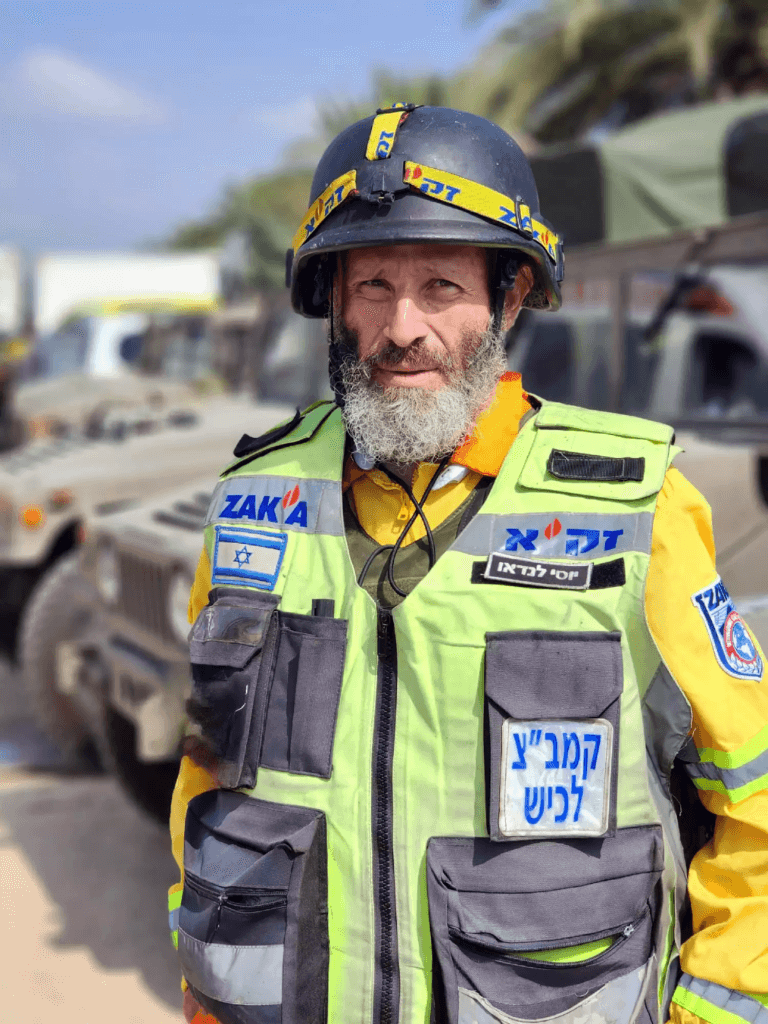
Similar to Greiniman, Landau has also been discovered to have disseminated fake news. On December 3, 2023, Haaretz published a report detailing several false testimonies disseminated by Israeli entities, confirming Landau’s personal responsibility for propagating some of these fake stories.
Among Landau’s lies was the myth of “dozens of beheaded children,” a claim that was refuted. Another reported lie was about the piles of children’s bodies burned together, a narrative that he repeated time and again, likening it to the Holocaust.
Landau also claimed, while crying in front of foreign reporters, to have seen “a pregnant woman, her abdomen ripped open, with the fetus outside her womb tied by the umbilical cord, and the fetus itself stabbed with a knife.” This has also proven to be a fabrication. Haaretz refuted any knowledge of a similar known case and interviewed the residents of the kibbutz, who denied the existence of such a case or even of a pregnant woman among their neighbors.
Landau’s lies shouldn’t come as a surprise. In a conversation with foreign journalists, he said, “When we go into a house, we use our imagination. The bodies were telling us stories that happened, that’s what happened.”
Disturbingly, despite being proven to be a pathological liar, Landau’s testimonies are still cited in PHRI publications and are circulating in major international media networks, including The New York Times‘ latest report on “how Hamas weaponized sexual violence on Oct. 7”.
In the Times article, Landau claims that ZAKA volunteers are not allowed to take pictures. Other volunteers, such as Haim Otmezgin and Simcha Greiniman, assured reporters that they have photos. The Times report also says that ZAKA volunteers “inadvertently” destroyed evidence. Sources in the Israeli army claimed this happened when ZAKA members changed the body bags to take photos of the bodies in bags bearing their logo.
Haim Otmezgin defending rape victims?
The head of ZAKA’s “special unit,” Haim Otmezgin, testified on November 30 in front of the “Women’s Affairs Committee” in the Israeli Parliament.
The Israeli press widely covered the testimony, which was endorsed by many Israeli women’s organizations. When he posted the video of his testimony in parliament on his Facebook page, he wrote: “The world needs to know in order to support us and enable us to accomplish the task.”
Like other testimonies by ZAKA’s men, his testimony lacked information and repeated false stories (beheaded babies, again). Otmezgin claims to “possess photos” of “a naked woman with a sharp object stuck in her crotch.” Nearly two months into the propaganda campaign, not a single journalist reported seeing these pictures. This isn’t the first time he has claimed to have evidence unseen by anyone else.
Since we are left to believe Otmezign’s words with no evidence to back them up, we must question his credibility.
Otmezgin is a reserve soldier in the Israeli army and the owner of a human resources company. His name appeared in the press earlier this year after his participation in the Israeli rescue team following the earthquake in Turkey. Upon his return, Turkish authorities opened an investigation against him, accusing him of stealing and smuggling from Turkey into Israel an antique manuscript from “the Book of Esther” found under the rubble.
But when it comes to believing Otmezgin, one must consider his connection to ZAKA’s founder, Yehuda Meshi-Zahav.
ZAKA leaders and the silencing of rape victims
In 2021, two investigative reports shook Israel. The first appeared in Haaretz newspaper, followed by TV reportage by the investigative news program Uvda. Both presented testimonies from victims of sexual assaults committed by the ZAKA founder over decades against both males and females, including children from the age of 12 and adults. The victims confirmed that those sexual crimes were widely known in Meshi-Zahav’s surroundings, likely also to Otmezgin, who was one of his closest trusted friends and worked alongside him for over 25 years.
Otmezgin publicly defended Meshi-Zahav, even after a series of testimonies emerged: “I recently spoke to him, asked how he’s facing the case, how he spends these days, supported him, and we talked about faith matters. Anyone who knows him knows he cannot harm any person.”
But Haim Otmezgin wasn’t the sole supporter of Meshi-Zahav. The ZAKA leadership, which is still in power, provided full support for him as well. Meshi-Zahav, according to evidence, used the organization’s funds, volunteer cards, and other properties for his criminal acts. In one of the first testimonies that emerged in Haaretz, a woman recounted how Meshi-Zahav threatened her during the rape: “If you utter a word, a ZAKA truck will run you over.”
Once the police investigation began, investigators announced they planned to interrogate the organization’s leadership on suspicions of silencing victims and concealing evidence. With Meshi-Zahav’s suicide, the file was closed.
In June 2023, Channel 12 revealed that the ZAKA organization, using donation funds, hired a private investigation office to track and gather smearing information about Isaac Weinhaus, an Orthodox Jewish activist working to expose sexual violence in the community. Weinhaus was one of the figures who contributed to breaking the silence surrounding Meshi-Zahav.
The fact that women’s organizations are now endorsing the statements of ZAKA leadership and demanding the world to blindly believe Meshi-Zahav’s defenders when it comes to the events of October 7 is not only absurd and cynical but is indicative of how deep anti-Palestinian racism runs.
The Short String
The Short String is an anonymous group of Palestinian journalists in Israel who analyze the role of international media and organizations in promoting Israeli propaganda. The authors have requested anonymity in the face of persecution, violence, and threats from Israeli authorities, which would put them in severe danger.
More by this author
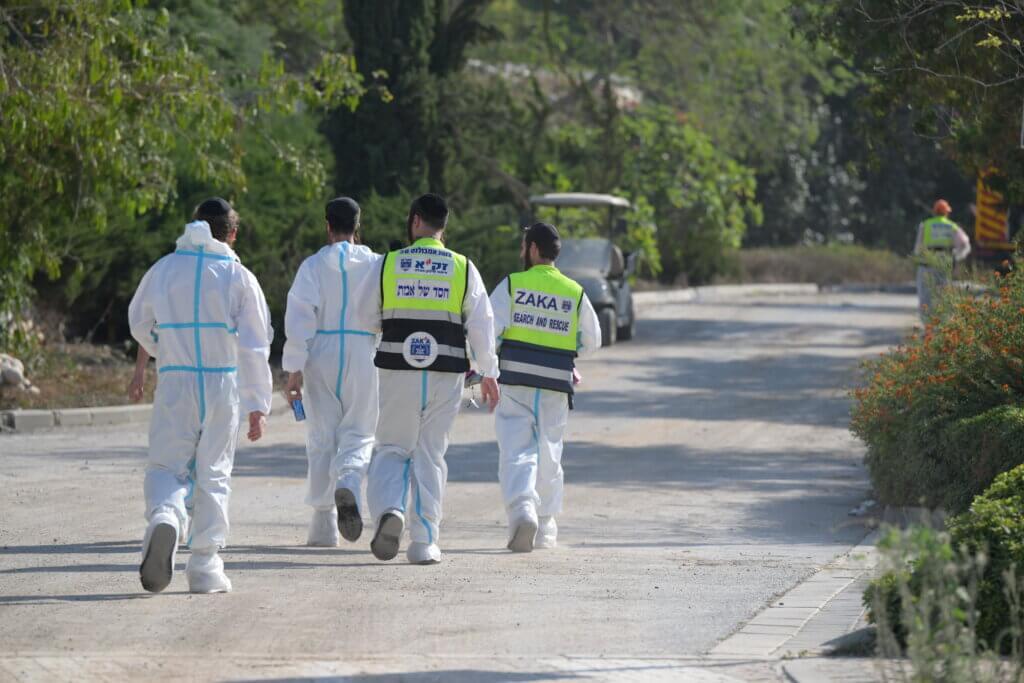
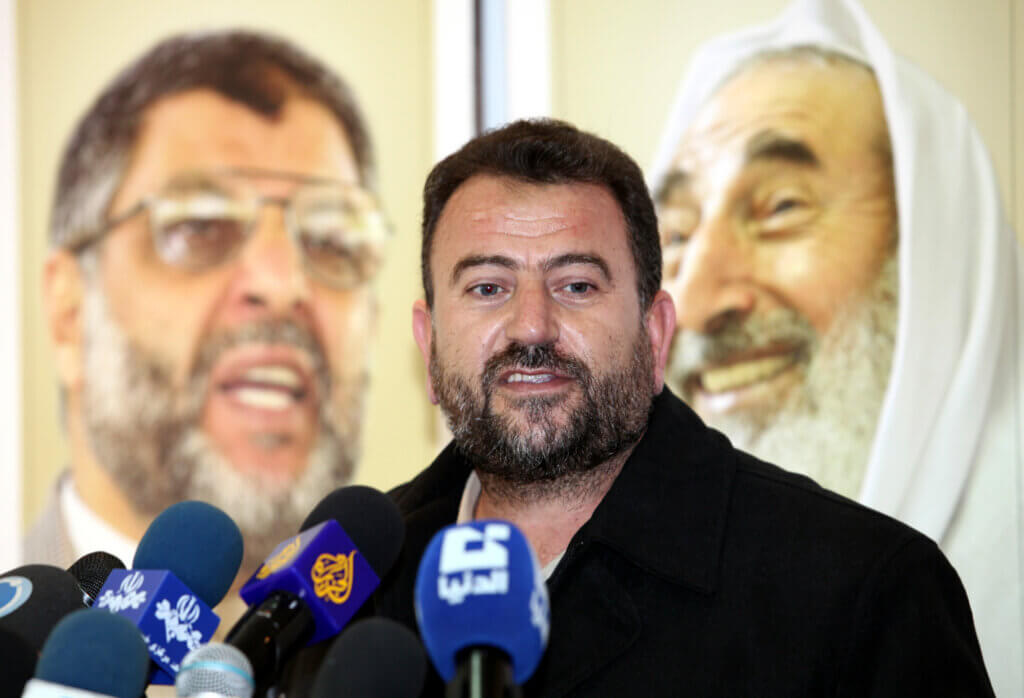




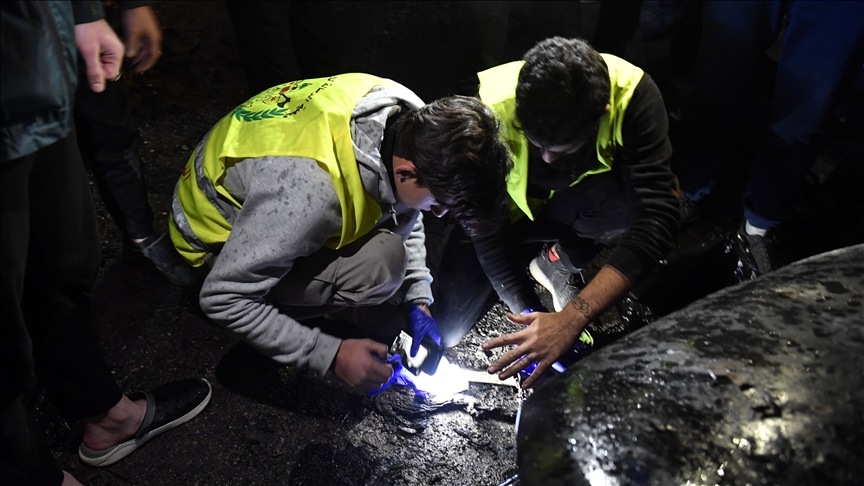
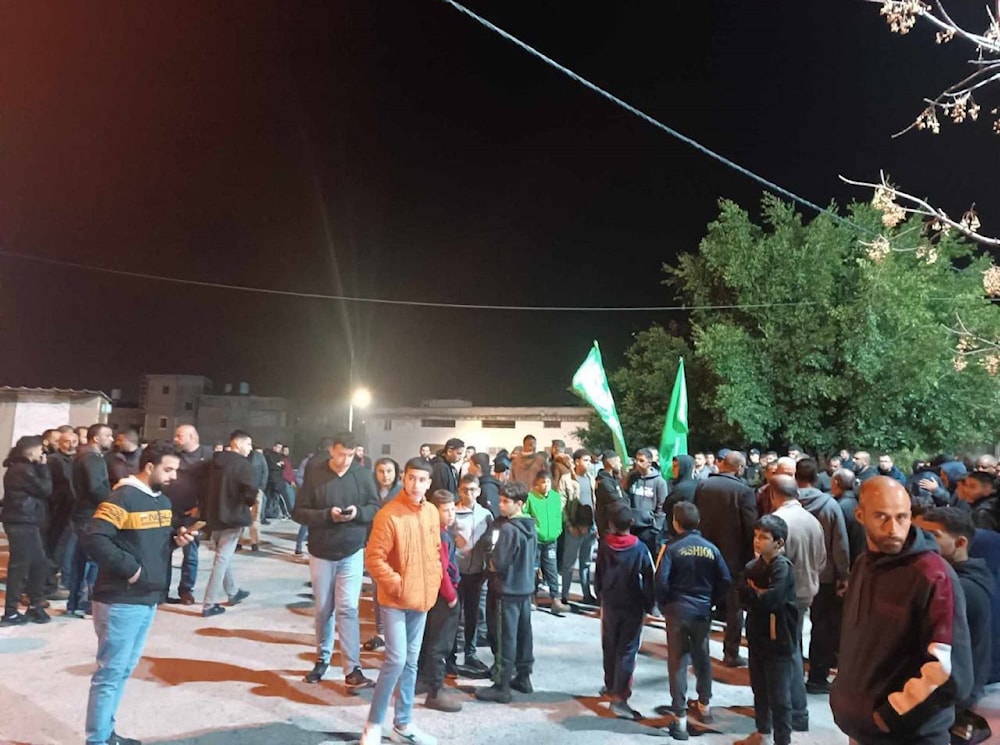

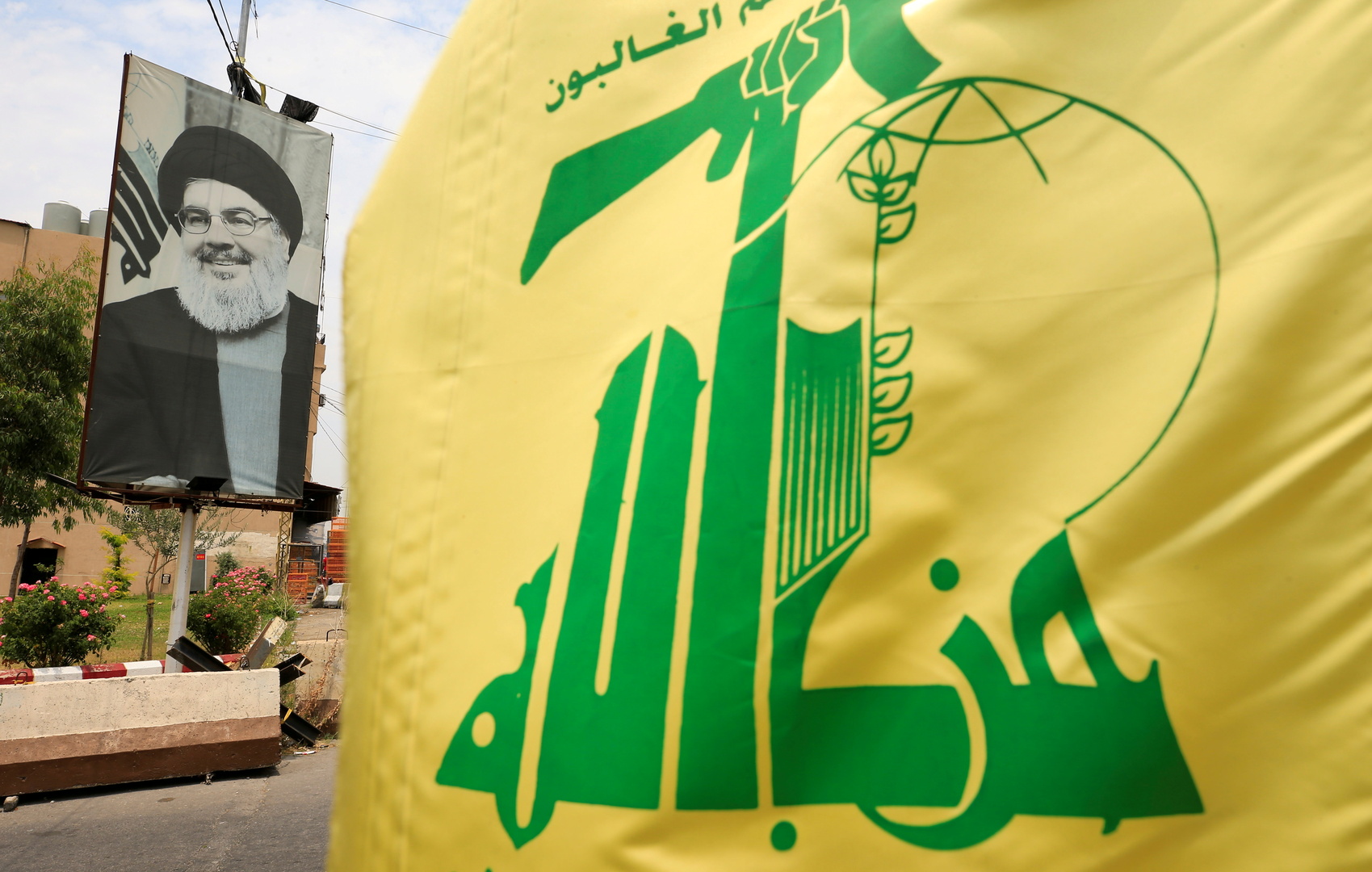



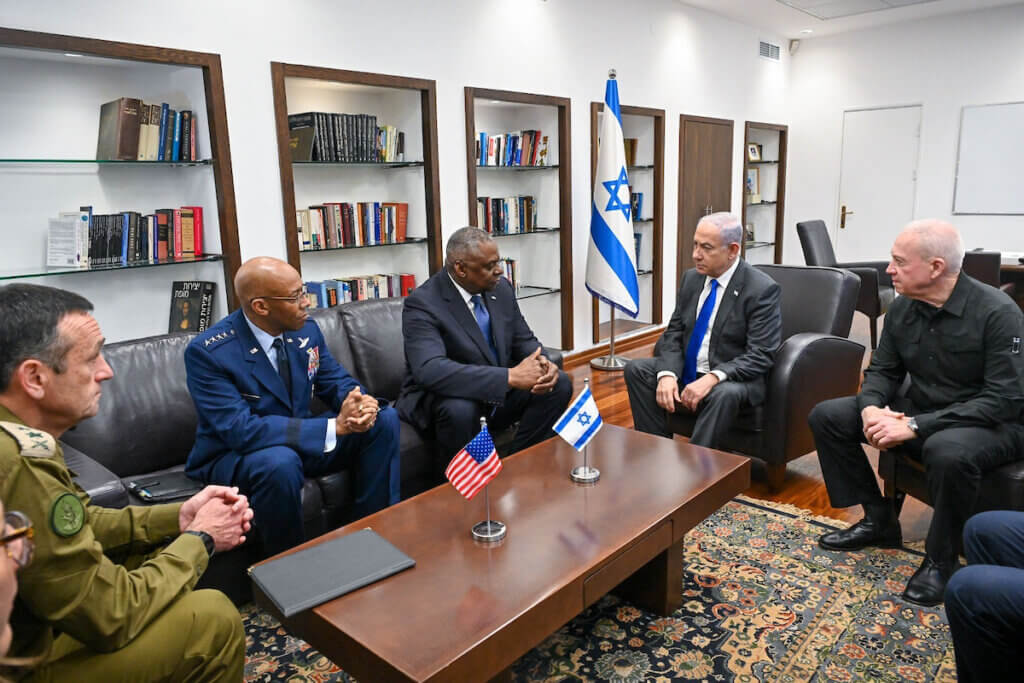
:quality(70)/cloudfront-us-east-1.images.arcpublishing.com/adn/IYZAIDBU5PQ4LATX5QVX5NFIGM.jpg)